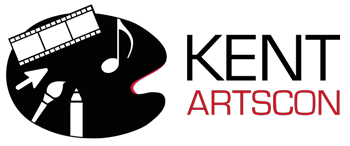Dr Innocent Hakizimana Abubakar, Universidade Lúrio (UNILURIO), Mozambique
E: iabubakar@unilurio.ac.mz
Innocent Hakizimana Abubakar is a lecturer at Universidade Lúrio (UniLúrio), at the School of Social and Human Sciences (FCSH), and Director of the Indian Ocean Cultural and Religious Studies Centre (CECROI) at Ilha de Moçambique, in the province of Nampula, Republic of Mozambique. He holds an Honours Degree (licenciatura) in French Language Teaching (FLE) from Universidade Eduardo Mandlane in Mozambique, a Masters of Arts (in African Francophone Literatures) from the University of KwaZulu-Natal in South Africa where he is doing a PhD. His academic interests encompasses an interdisciplinary approach of literature, translation, culture, identity, heritage, population mobility and climate changes.
Presentation: Reclaiming Legacy: Unveiling (Un)told Stories of Colonialism through Mozambique’s Digital ‘Open-Air’ Exhibition
Co-presenting with Dr Juliana Mainard-Sardon and Professor Isabella Rega
Our paper investigates how marginalized communities choose to rebuild their art legacy while connecting with a troubled heritage. The act of choosing signifies a connection between place, artifacts, and (un)silenced voices. In our paper we explore how this connection can be mediated by digital tools, and in this specific case digital storymaps, as enabler of visibility, reflexivity and storytelling. Thus, we ask: how can marginalized communities use digital maps to reflect on their identity and promote counter-narratives about their past, present, and future to be shared within and beyond local borders?
Using digital Storymapping in Mozambique, we learn from the people of Ilha de Moçambique about (un)told stories of colonialism. Community leaders collaborated to establish a digital ‘open-air’ living exhibition where they select artifacts to represent their lived experiences of colonialism. We present the process by which this community chose their art heritage and made collective decisions to showcase their legacy of (un)told history through different artifacts, cultural manifestations and landmarks, contrasting with the objects displayed in their ‘official’ museum.
This paper delves into the participatory process that led to the production of the maps and includes contributions from members of the International Network research team. The StoryMap is a journey through the Ilha de Moçambique corridor, encompassing the Ilha de Moçambique district and Municipality, Monapo District and Municipality, and Mossuril District in the province of Nampula. It gathers local narratives of colonial heritage spoken in the oral tradition of the communities. Local stakeholders – including authorities, artists, and decision-makers – came together to agree on the content of the StoryMap, produced by Universidade Lurio.
In this paper, we explore how marginalized communities reconcile with some of their colonized past by challenging conventions of what represents their cultural artifacts and community heritage. Moreover, we consider the potential of digital Storymapping as a participatory method that mobilizes storytelling and reflexivity.
Keywords: Marginalised communities, digital StoryMaps, Mozambique, colonialism
